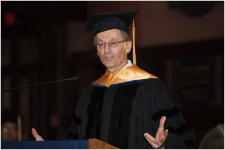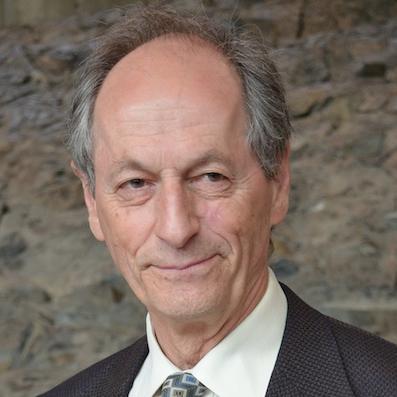Celebrating scholarship
It has been a fortnight of celebrations. Celebrations of scholarship. University graduations are moving occasions: times of celebration of achievement and hope. There will be time for disappointment and frustration, time for cynicism and loss of ideals. But not now, not at graduation. Now is the opening up of possibilities to make a difference. Perhaps that is why the Americans call the completion of University studies: commencement. In Sweden they call it promotion – my fortnight was bookended by graduations in Yale and Lund. In both cases, the University itself put on a grand occasion to honour their graduates – to celebrate scholarship. It is wonderful and moving, and a special interlude in the rhythms of what we do the rest of the time.
 When in Britain the previous government raised university fees, the arguments seemed to be that lucky university students will gain economic benefit from a degree; therefore, they should pay. And Universities are pushed to show that they contribute to the economy. They do. But universities are about much more than enhancing earning power for individuals and the nation. They are places of scholarship and commitment, of morality and reason. And graduation is a time to celebrate this higher calling.
When in Britain the previous government raised university fees, the arguments seemed to be that lucky university students will gain economic benefit from a degree; therefore, they should pay. And Universities are pushed to show that they contribute to the economy. They do. But universities are about much more than enhancing earning power for individuals and the nation. They are places of scholarship and commitment, of morality and reason. And graduation is a time to celebrate this higher calling.
I was at Yale on 18 May for their graduation. I come with my inequality baggage of course. Yet awareness that these Yale students, many of them, had enormous privilege just to get to Yale, and accumulate even more being a graduate, didn’t stop my enjoyment of the splendid occasion. In the School of Public Health graduation ceremony, Jordan Emont, who spoke, brilliantly, on behalf of the students said they were united in their desire to contribute to a healthier future for the population, to confront the challenge of health inequalities. He spoke not of increased earning power but of the special bond with his fellow students and their joy of learning.
I gave the commencement address to the School of Public Health graduating class: http://publichealth.yale.edu/news/archive/article.aspx?id=9309
I was slightly disoriented. The academic procession, in full academic regalia, was accompanied by Elgar’s Pomp and Circumstance March. Shades of ‘Last Night of the Proms’, the BBC’s annual patriotic flag fest. Land of Hope and Glory, a British patriotic ode, in the US? The Dean, Paul Cleary, assured me that there was no political significance; they always played Elgar at Commencement. Paul was a great host and clearly a great dean as one graduating student after another hugged him. An oxytocin surge to warm up a formal afternoon.
Yale awarded me the Centennial Winslow medal in commemoration of the Founder of Yale School of Public Health in 1915. I quoted Winslow. In 1940 he wrote: In 1890 public health was an engineering science. In 1940, it is a medical science. Tomorrow it may be a social science. We must “pay attention the social environment that man has made for himself and in which he lives and moves and has his being…” Not a bad description of social determinants of health. Thank you, Charles-Edward Amery Winslow.
Winslow understood relative inequality. He wrote: “the sense of inferiority due to living in a substandard home is a far more serious menace to the health of our children than all the insatinary plumbing in the United States.” Wish I’d said that.
Some American politicians seem to be mired in pre-enlightenment thinking. Quoting Kant, I suggest to the graduating students that each of them “have the courage to use your own understanding”; and still moved by my meeting with him, I quoted Bernard Lown: Never whisper in the presence of wrong.
Could you take someone seriously who looked like this?

